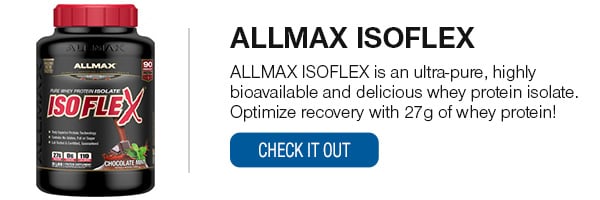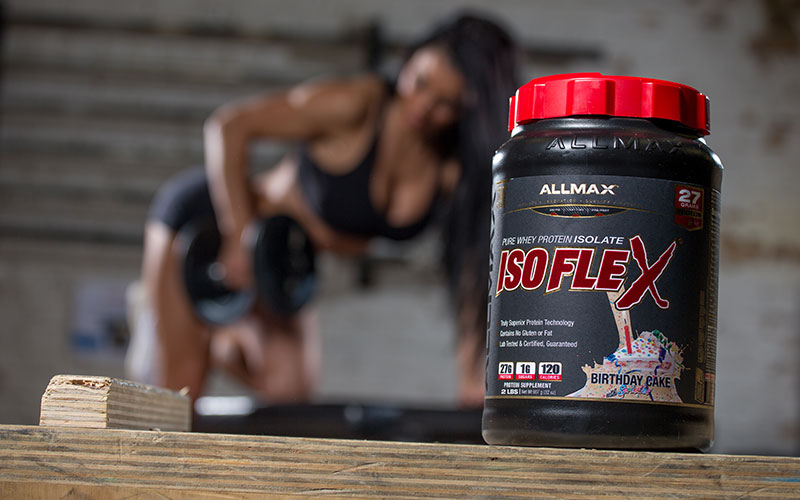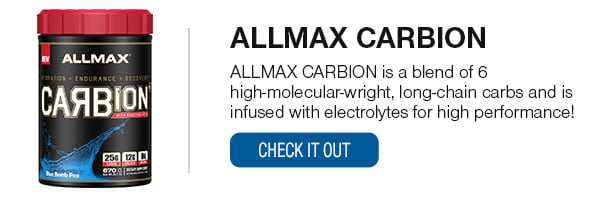01dragonslayer
Ripped
- Jacked Cash
- 485,385
Are you doing these 6 things after you finish your daily workouts? If not, you might be leaving some gains on the table. Start maximizing your training.
No matter how hard you work out, it is important to remember that if you wish to maximize your progress, it is what you do (or don’t do) in the first 30-45 minutes after grinding out that final rep that will make or break the long-term result.
You see, training in and of itself acts only as the stimulus for hypertrophy, but will do very little to actually manifest it, unless the body is rapidly fed the nutrients/compounds needed to not only facilitate muscular/systemic recovery, but also to provide the necessary “material” or “building blocks” to actually grow new lean tissue (muscle).
As well, several other specific mistakes are often made after a workout that must be avoided if one is interested in efficiently building a leaner and more muscular physique. Let’s take a look at the things you should not do after training and how to go about correcting these costly errors.
Related: Cardio Strategies Guaranteed to Burn Thousands of Calories
If your overall program calls for large amounts of cardio, it would be best to separate it from your weight-training workout by a good five to six hours. This approach will keep cardio from stepping on your anabolic toes.
Coach’s suggestion: If the main goal is muscle growth then limit post workout cardio to no longer than 20-30 minutes and make sure it is “steady state.” If the goal is to maintain muscle while significantly lowering overall body fat, then opt for fasted cardio first thing in the morning – either about 60 minutes performed steady state or 15-20 minutes done in “HIIT” style.

Coach’s suggestion: Once your workout is complete (do not do this before training), stretch the targeted muscles (with the use of resistance if possible) for 3 sets of 30 seconds.
Additionally, after your training sessions, the body is physiologically set up to push nutrients directly toward muscles while avoiding fat cells – the perfect scenario for positively altering body composition. Too many trainees ignore this, waiting hours before eating their post workout meal, which is one of the most profound mistakes that could be made. Don’t let your hard work go to waste!
Coach’s suggestion: As soon as you finish that last rep, already have in mind what you plan to consume to refuel your body and begin the recovery process. If you have a long drive home from the gym, then always have a meal with you that can be consumed before or during the trip. Some gyms even have microwaves available so that you can pop your food in and heat it before you leave.

Related: How To Choose The Right Supplements According To Science
Coach’s suggestion: After completing your workout, mix 1-2 scoops of protein in 8 oz. of water or almond milk for the perfect post workout protein. This is especially helpful if you don’t have the appetite or time to consume a full meal post-workout. An additional tip would be to add in a banana for a chewing component to help with digestion and for carbs.
Do not make the misinformed mistake of missing out on the muscle building power of carbs as part of your post workout meal.
Coach’s suggestion: Consume about twice as many carbs as protein (so a 2:1 ratio of carbs to proteins) in the form of rice, potatoes, rice cakes, or bread for optimum glycogen replenishment and nutrient partitioning.

However, either out of ignorance or laziness, many lifters ignore supplements entirely, which is a huge mistake (and missed opportunity for greater progress) especially after crushing the weights for a couple of hours. Thus, if gaining muscle and losing fat are high on your priority list, then make sure to take advantage of proven post-workout supplements such as creatine, leucine, LCLT, taurine, betaine, and beta-alanine.
By consuming an efficacious dose of each immediately after training, you will help make sure that not a single rep or set goes to waste.
Coach’s suggestion: Right after you complete that final repetition immediately consume 5g of L-Leucine, 5g of Taurine and 5g of Creatine.
No matter how hard you work out, it is important to remember that if you wish to maximize your progress, it is what you do (or don’t do) in the first 30-45 minutes after grinding out that final rep that will make or break the long-term result.
You see, training in and of itself acts only as the stimulus for hypertrophy, but will do very little to actually manifest it, unless the body is rapidly fed the nutrients/compounds needed to not only facilitate muscular/systemic recovery, but also to provide the necessary “material” or “building blocks” to actually grow new lean tissue (muscle).
As well, several other specific mistakes are often made after a workout that must be avoided if one is interested in efficiently building a leaner and more muscular physique. Let’s take a look at the things you should not do after training and how to go about correcting these costly errors.
1. Limit Your Cardio Training Post-Workout
There's absolutely nothing wrong with doing a moderate amount of cardio after you finish lifting, since it will help to cool you down, burn off a little extra body fat and allow you to catch up on your text messages. But it should not be excessive, or you will severely hamper the physiological and hormonal mechanisms that lead to muscular hypertrophy.Related: Cardio Strategies Guaranteed to Burn Thousands of Calories
If your overall program calls for large amounts of cardio, it would be best to separate it from your weight-training workout by a good five to six hours. This approach will keep cardio from stepping on your anabolic toes.
Coach’s suggestion: If the main goal is muscle growth then limit post workout cardio to no longer than 20-30 minutes and make sure it is “steady state.” If the goal is to maintain muscle while significantly lowering overall body fat, then opt for fasted cardio first thing in the morning – either about 60 minutes performed steady state or 15-20 minutes done in “HIIT” style.

2. Don’t Forget to Stretch Out
Something 95% of all trainees fail to do after training is to intensely stretch the muscles that were just worked. It is vital to understand that by simply putting a muscle under the tension of a powerful stretch, one will facilitate a very profound anabolic (growth-promoting) pathway into action.Coach’s suggestion: Once your workout is complete (do not do this before training), stretch the targeted muscles (with the use of resistance if possible) for 3 sets of 30 seconds.
3. Refuel Your Body
After spending 90 minutes to two hours pounding the iron, your body is in severe need of nutrients—especially amino acids and carbohydrates, to replenish, restore, and repair damaged muscle cells while feeding the exhausted nervous system.Additionally, after your training sessions, the body is physiologically set up to push nutrients directly toward muscles while avoiding fat cells – the perfect scenario for positively altering body composition. Too many trainees ignore this, waiting hours before eating their post workout meal, which is one of the most profound mistakes that could be made. Don’t let your hard work go to waste!
Coach’s suggestion: As soon as you finish that last rep, already have in mind what you plan to consume to refuel your body and begin the recovery process. If you have a long drive home from the gym, then always have a meal with you that can be consumed before or during the trip. Some gyms even have microwaves available so that you can pop your food in and heat it before you leave.

4. Supplementing with Whey Can Be Helpful
Because whey protein (especially in isolate and hydrolyzed form) is digested very quickly, it will supply your muscle cells with much-needed amino acids more rapidly than any other protein source. Additionally, whey is very high in the branched chain amino acids, which help turn on a major muscle growth pathway and facilitate protein synthesis.Related: How To Choose The Right Supplements According To Science
Coach’s suggestion: After completing your workout, mix 1-2 scoops of protein in 8 oz. of water or almond milk for the perfect post workout protein. This is especially helpful if you don’t have the appetite or time to consume a full meal post-workout. An additional tip would be to add in a banana for a chewing component to help with digestion and for carbs.
5. Don’t Forget About Your Carbs
As I mentioned previously, it's essential (if maximum progress is your goal) to quickly consume the proper nutrients after a workout—and carbs play a very important role in this equation. After weight training the body is in a hormonal environment whereby carbohydrate calories are almost entirely shuttled towards muscle cells to replace lost glycogen.Do not make the misinformed mistake of missing out on the muscle building power of carbs as part of your post workout meal.
Coach’s suggestion: Consume about twice as many carbs as protein (so a 2:1 ratio of carbs to proteins) in the form of rice, potatoes, rice cakes, or bread for optimum glycogen replenishment and nutrient partitioning.

6. Other Supplements May Prove to be Beneficial
When it comes to making optimal gains, there's nothing more important than proper diet and training – those make up your “foundation.” However, when the foundation is strong, then a scientifically validated, well-timed, high quality supplement program will certainly hasten the process significantly.However, either out of ignorance or laziness, many lifters ignore supplements entirely, which is a huge mistake (and missed opportunity for greater progress) especially after crushing the weights for a couple of hours. Thus, if gaining muscle and losing fat are high on your priority list, then make sure to take advantage of proven post-workout supplements such as creatine, leucine, LCLT, taurine, betaine, and beta-alanine.
By consuming an efficacious dose of each immediately after training, you will help make sure that not a single rep or set goes to waste.
Coach’s suggestion: Right after you complete that final repetition immediately consume 5g of L-Leucine, 5g of Taurine and 5g of Creatine.

